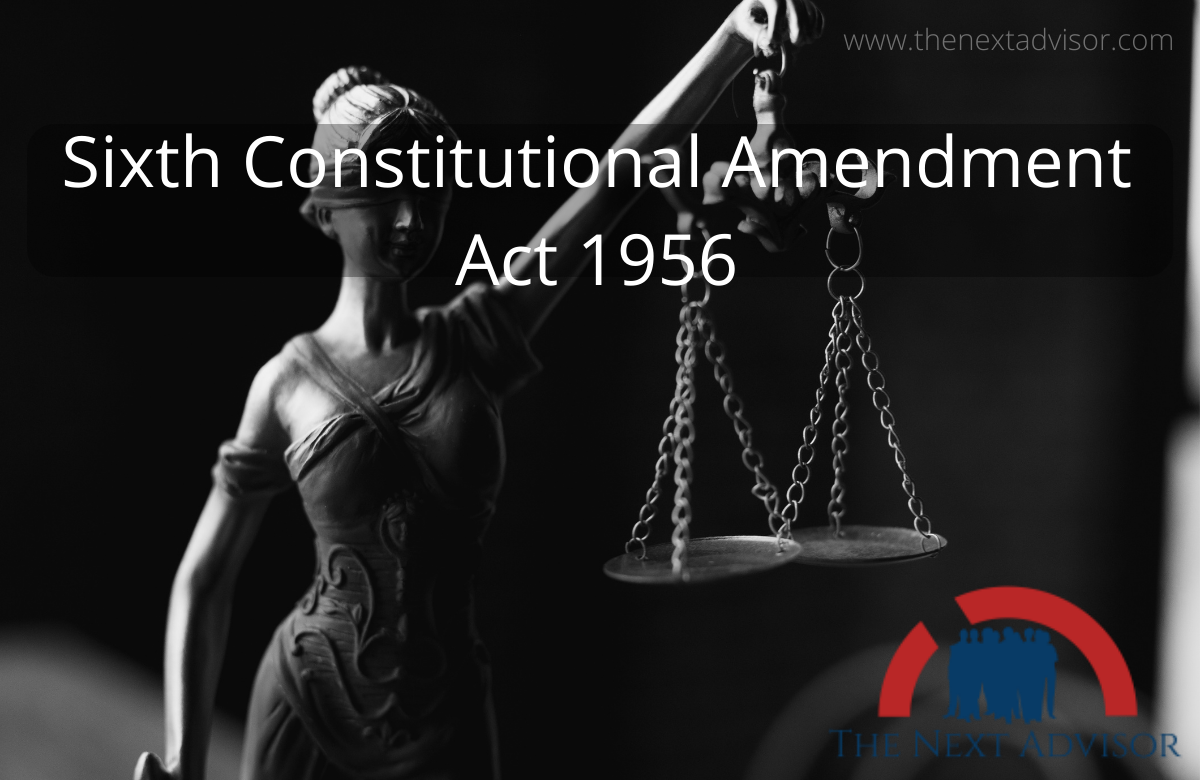Hello friends, I would like to put your attention to my next topic, i.e. Sixth Constitutional Amendment Act 1956. You all know about this but I will explain Sixth Constitutional Amendment Act 1956 in detail.
The seventh schedule was amended by the sixth Constitutional Amendment Act. Let us see what type of Federalism is kept by the Media and the importance of the Sixth Amendment Act.
FEDERALISM
When we have more than two layers of the government then we can call it Federalism or we can call that nation Federal Nation. Therefore India is a Federal Nation. And legislative Power is divided into Parliament, State and Judiciary, and this concept is called power-sharing.
- In terms of legislative power-sharing, Article 246 of the Constitution confers legislative powers on the Parliament and the State Legislatures on the subjects enumerated in the Seventh Schedule.
- Due to this center-heavy nature of the federal scheme, it can be argued that India does not follow a pure federal model. But in India Power is tilted towards Central so it is not pure federal.
- K.C. wheare has written that India is a quasi-federal Nation. Means Semi Federal.
- We are Holding Together, Rather than Coming Together Federalism. In India, we did holding together by giving the unit visions or by giving a unitary biased model to the constitution.
Purpose Of Sixth Constitutional Amendment Act 1956
- Amendment of the Seventh Schedule- In the Seventh Schedule to the Constitution.
The 7th Schedule: Article 246
It deals with the division of powers between the Union government and State governments
- Union List-List I
- State List-List II
- Concurrent List-List III
the list I (97 Entries)But overall you can read it 100 Entries
On the subject of this list, only Parliament can make laws. On Residual topics means which is not in list II and list III, on that topics, Parliament can make laws. Therefore India called Unitatry biased model.
- Defense
- Army
- International Relations
- Ports
- Railways
- Highways
- Communication
- Any other matter not enumerated in List II or List III including any tax not mentioned in either of those Lists. (Residuary Power)
List-II (66 Entries)
On the topic of list II, only State can make laws
- Public order
- Police
- Public Health and Sanitation
- Hospitals and Dispensaries
List III (47 Entries)
Both State and Parliament can make laws. But in conflict on any topic then Parliament law is supreme.
- Criminal Law
- Education
- Forest
- Trade Unions
What amendments were done in Sixth Amendment Act
(a) In the Union List, after entry 92, the following entry shall be inserted, namely.
“92A. Taxes on the sale or purchase of goods other than newspapers where such sale or purchase takes place in the course of inter-state trade or commerce.” and
(b) In the State List for entry 54, the following entry shall be substituted namely,
“54. Taxes on the sale or purchase of goods other than newspapers, subject to the provisions of entry 92A of List I.”
Amendment of Article 269 – In Article 269 of the Constitution-
(a) in clause (1), after Sub-clause (f), the following sub-clause shall be inserted namely-
“(g) taxes on the sale or purchase of goods other than newspapers,
where such sale or purchase takes place in the course of inter-trade or commerce.

























